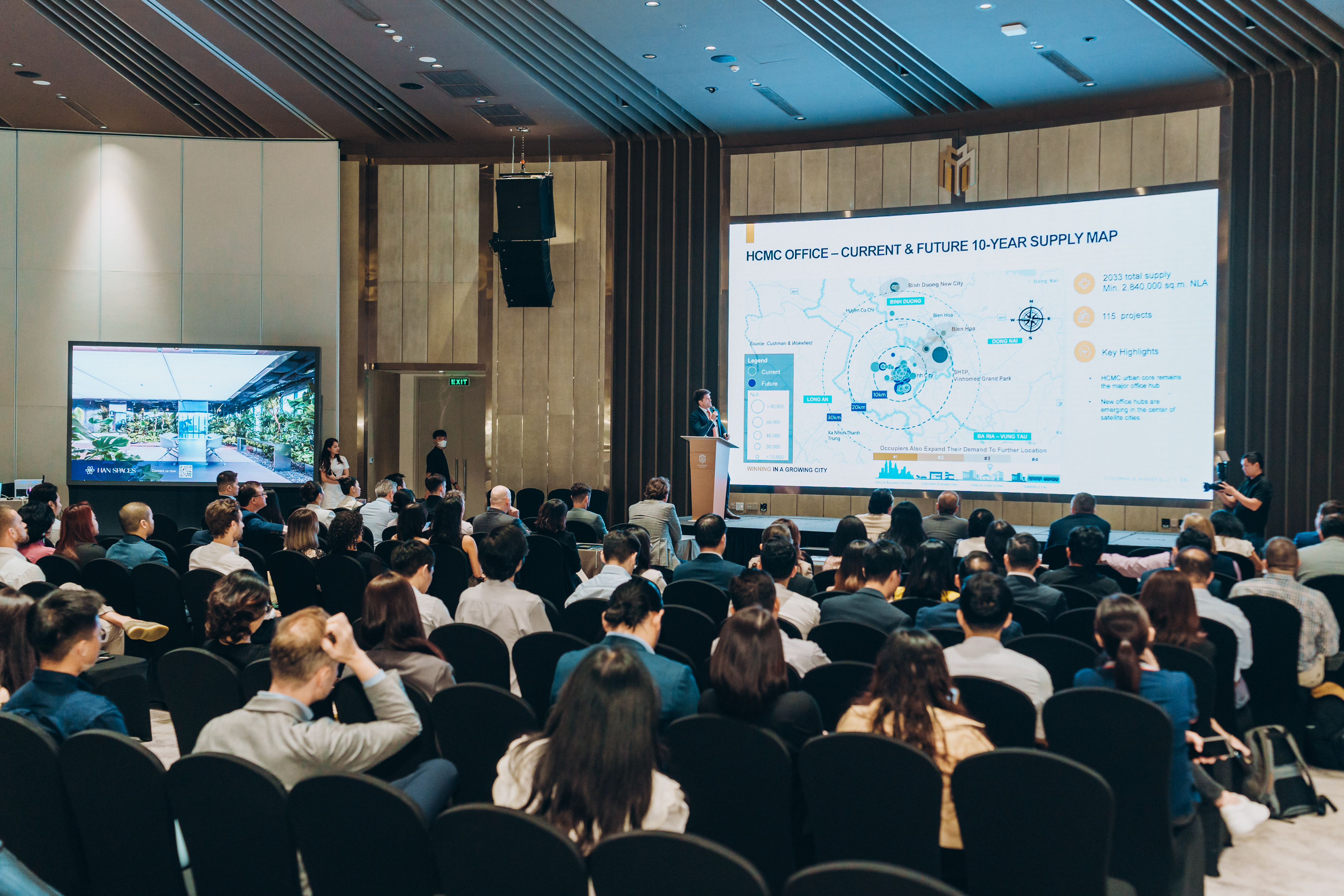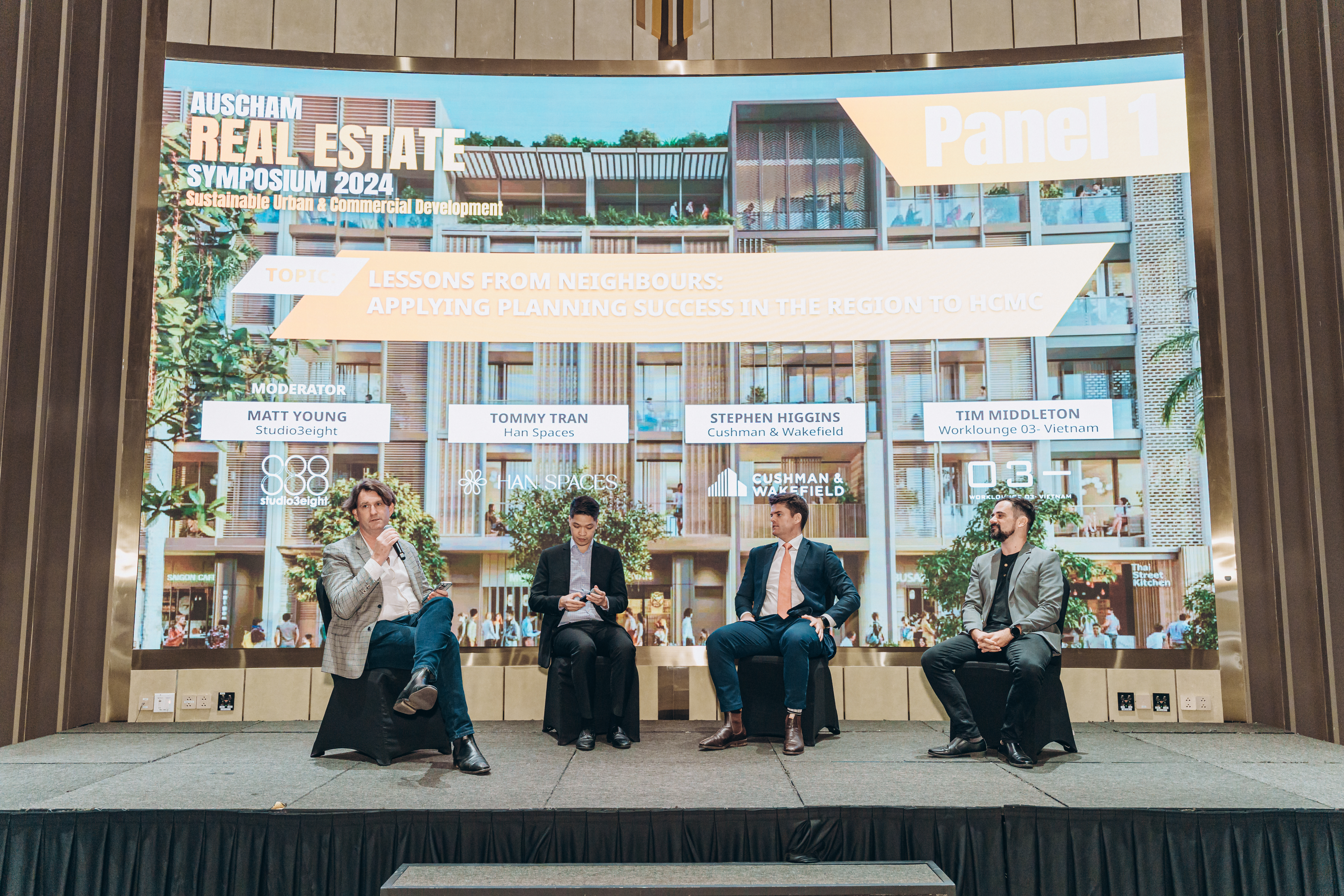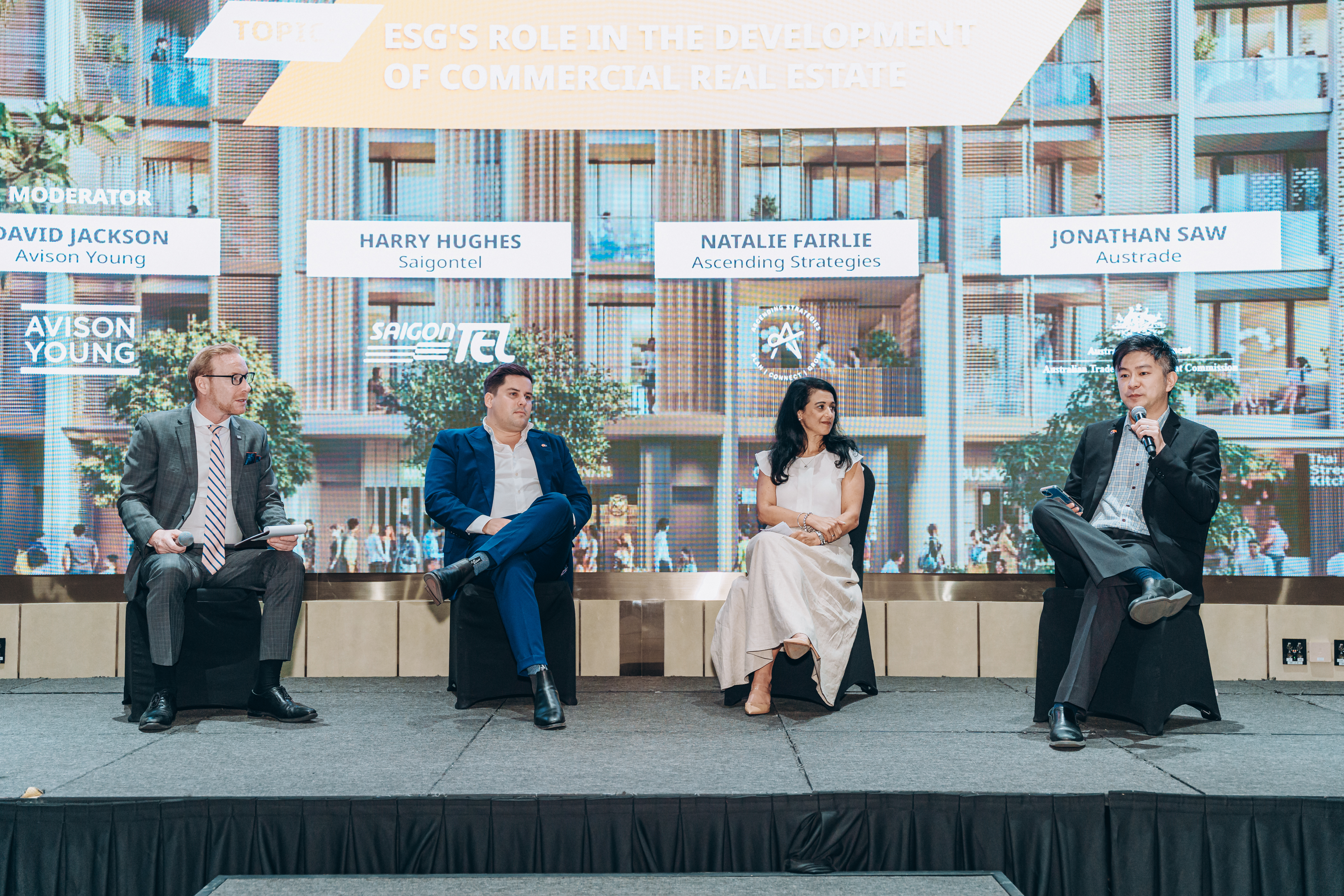AusCham’s 10th Real Estate Symposium: A Landmark Event
AusCham’s 10th Real Estate Symposium broke the mould with several exciting firsts. Held at the new Global City, the event was supported by venue sponsor and AusCham member Masterise Group.

This year marked a departure from previous co-partners, allowing us to collaborate with like-minded chambers and co-sponsors to address a pressing issue: achieving urban sustainability in a city of 10 million (and unofficially higher), soon to join the ranks of megacities. This timely discussion opened new avenues for collaboration and innovation, featuring three keynote speakers and two sessions moderated by industry experts.
Opening the discussion on AusCham’s theme of “Sustainable Urban & Commercial Development,” keynote speaker Stephen Higgins, Executive Director of Capital Markets at Cushman & Wakefield Vietnam, addressed Vietnam’s key growth period and the rise of new urban hubs. He highlighted the opportunities and challenges posed by rapid urbanisation, particularly in light of progress and delays in coastal and ring roads, as well as the interest of advanced industries entering the market. Stephen also examined the complexities of social housing, emphasising the importance of building communities centred on green walking spaces and the 20-minute community model.
Second keynote speaker Tommy Tran, President of HAN Spaces and one of the event's sponsors, delivered a heartfelt talk about his childhood growing up surrounded by trees and experiencing community life along the river. From an architectural perspective, Tommy emphasised the global trend of designing workspaces that prioritise natural sunlight and greenery, creating environments that foster relaxation and well-being, which in turn leads to a more productive workforce. He said, “If an office looks like an office, it’s in trouble.”
Attendees had the opportunity to experience HAN Spaces’ cutting-edge technology, including a VR demo. This innovation allows spaces to be fully envisioned before execution, paving the way for a new relationship between design, technology, and our living environments.
The final keynote speaker is no stranger to the stage, having delivered four TEDx talks on AI-powered hyper-performance, known as Human Artelligence. Agnis Stibe, Acting Associate Head of Business Innovation at RMIT University Vietnam, opened his talk with the powerful statement, “We need to talk about sustainability because something is unsustainable.”
While we possess the knowledge, the real challenge lies in implementation, particularly in human choices and behaviour—referred to as the knowledge-behaviour gap. By leveraging our intelligence to interact with AI, Agnis suggests we can tackle various environmental and sustainability challenges. He advocates for economical living spaces designed with modular furniture—transforming from a bed by night to a mini living room by day—revolutionising our interaction with both technology and our physical environments. ‘The Littery’, an innovation that Agnis advised, employs sensors to sort litter correctly and rewards consumers with a lottery ticket for properly disposing of waste. In this way, everyone is a winner.
The first panel discussion and Q&A was moderated by long-time AusCham member and leading architect Matthew Young from studio3eight. Expert panellists included Tim Middleton from worklounge 03- Vietnam, Tommy Tran from HAN Spaces and Stephen Higgins from Cushman & Wakefield Vietnam.

With the guiding theme “Lessons from Our Neighbours: Applying Planning Success in the Region,” the panel addressed the holistic changes necessary for protecting, maintaining, and leveraging the natural environment as an asset to drive property values. They discussed innovative strategies for tackling flooding and stormwater management, as well as the need for collaboration between government and developers to create a city strategy that is both equitable and accessible.
Amid pressing corporate and consumer demands to meet net zero targets by 2050, Tim noted that most shifts in urban sustainability models will be market-driven, as the global supply chain must align with CSR and ESG goals.
The second panel discussion, titled “ESG’s Role in the Development of Commercial Real Estate,” was moderated by David Jackson, Principal and CEO at Avison Young. The panel featured AusCham’s Vice-President and Managing Director of Ascending Strategies, Natalie Fairlie; Harry Hughes, newly appointed Vice Chairman of the Strategic Council at Saigontel; and Jonathan Saw, Trade & Investment Commissioner to Vietnam & Cambodia at Austrade.
Natalie discussed how ESG targets will serve as primary drivers of value creation, establishing new standards for value opportunities. Conscientious investors are increasingly prioritising sustainability and social issues, seeking opportunities that align with these principles on behalf of stakeholders. Jonathan highlighted the Australian government’s role in the region as part of its South-east Asia Strategy launched last year, noting the key pillars that will support the transition to net zero in the coming years, with policymakers, ESG consultants, and Australian expertise leading the way.
Attendees had the opportunity to further discuss these issues over a glass of wine at the end of the symposium, thanks to AusCham member and wine sponsor Rada Wines.

